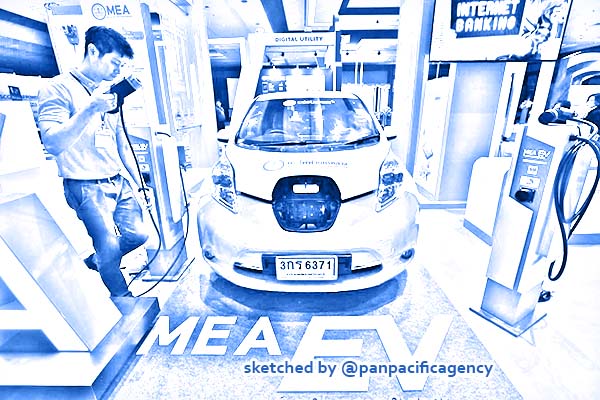S. Korea says US pledged to review impact of EV subsidy changes

The Metropolitan Electricity Authority's charging stations for EVs were on display at the National Engineering 2019 event at Impact Forum. Patipat Janthong. Sketched by the Pan Pacific Agency.
SEOUL, Sep 1, 2022, Reuters. South Korea’s national security adviser said on Thursday the United States has promised to review the impact of its new rules on subsidies for electric vehicles following concern they could hurt South Korean automakers, Yonhap news agency reported.
Kim Sung-han made the comment after meeting U.S. national security adviser Jake Sullivan in Hawaii, where they gathered for three-way talks with Japan chiefly to coordinate their Indo Pacific policies in the light of tensions between China and Taiwan.
Concerns have mounted in South Korea over the Inflation Reduction Act (IRA), signed into law by U.S. President Joe Biden last month.
Measures under the new law would include halting subsidies for EVs made outside North America, which could affect companies like Hyundai Motor Co (005380.KS) and its affiliate Kia Corp (000270.KS).
Kim said he raised the issue at a bilateral meeting with Sullivan, who in response pledged to look into the law’s impact at the National Security Council, Yonhap said.
“He said the IRA is likely to bring more pluses than minuses to Korea, but he would take a closer look at how the electric vehicle subsidy issue will develop going forward and what impact it will have,” Kim was quoted as telling reporters.
South Korea’s parliament on Thursday passed a resolution expressing concern over the new rules, which have eliminated the federal tax credits for which South Korean automakers’ EVs were previously eligible in the United States.
The resolution called for the South Korean government to respond, saying the law was discriminatory.
Lee Do-hoon, a South Korean vice foreign minister, said on Tuesday that Seoul has asked Washington to postpone the new rules until Hyundai completes building its Georgia factory in 2025. Seoul officials have also said the law may violate a bilateral free trade agreement.